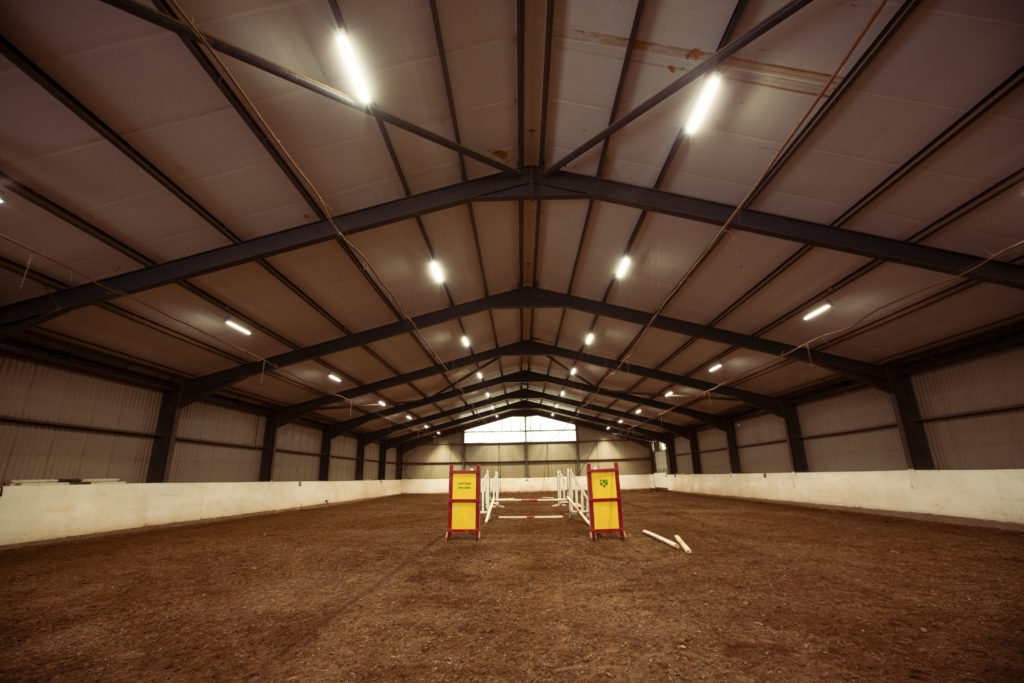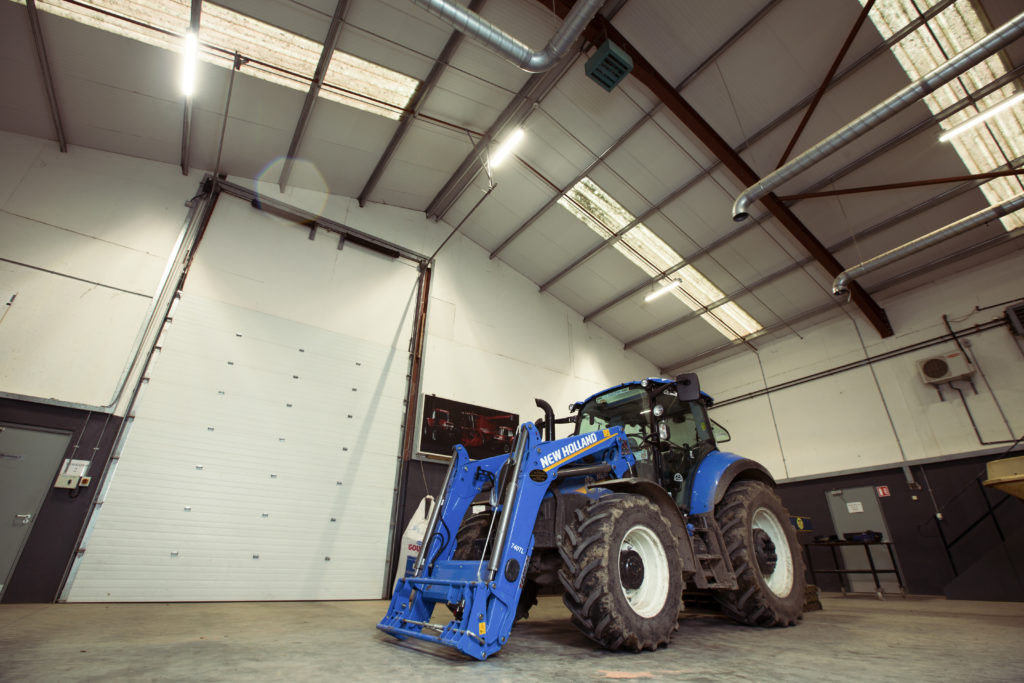Lightbulb Moment For Energy Saving At Gurteen College Farm
Gurteen College Farm is the largest agricultural farm in Ireland with over 380 hectares including dairy, beef, sheep, horses, machinery, tillage and forestry.
Over the years the college have implemented energy efficiency measures to reduce their energy use. These measures include the installation of a wind turbine and biomass boiler. There is also 80 acres of willow grown on the farm. Approximately one third of it is harvested each year in rotation. The harvested willow provides 80% of the heating for the college each year.
Mike Pearson, Principal of Gurteen College has seen how these energy efficiency measures benefitted the college and wanted to see was there a way they could reduce their €6,000 per month  electricity bill. ‘We looked into the economics of installing photovoltaic (PV) panels on the roof of the horse arena to help reduce our monthly electricity bill’
electricity bill. ‘We looked into the economics of installing photovoltaic (PV) panels on the roof of the horse arena to help reduce our monthly electricity bill’
‘We have a long-standing relationship with Tipperary Energy Agency and they were able to tell us about funding available through the Sustainable Energy Authority of Ireland’s Better Energy Communities Scheme’ says Mike.
Tipperary Energy Agency carried out an Energy Audit to establish how the energy costs could be lowered.
186 PV panels were installed on the roof of the horse arena. The main difference between photovoltaic panels and solar thermal panels is that PV directly converts the sun’s light into electricity. Solar thermal panels heat hot water from the sun’s energy. PV systems have some significant advantages over solar water heating systems in that they are easier to design, install, operate and maintain.
A total of €45,000 was invested into the installation of the PV panels and it is anticipated that they will produce over 40,000kW of electricity each year leading to a saving of between €7,000 and €8,000 per year.
A new smart LED lighting system was installed to all the main buildings and arenas with a total cost of €163,788. Each building required an individual smart system with individual controls.
 The upgrades now allow the college to promote the sustainable energies that are available, especially to the agricultural sector. The college also enjoys reduced maintenance costs on lighting and its overall energy use.
The upgrades now allow the college to promote the sustainable energies that are available, especially to the agricultural sector. The college also enjoys reduced maintenance costs on lighting and its overall energy use.
‘The ability to have Tipperary Energy Agency project manage the whole project meant that we could conduct a project that was too big for us to project manage ourselves,’ says Mike.




